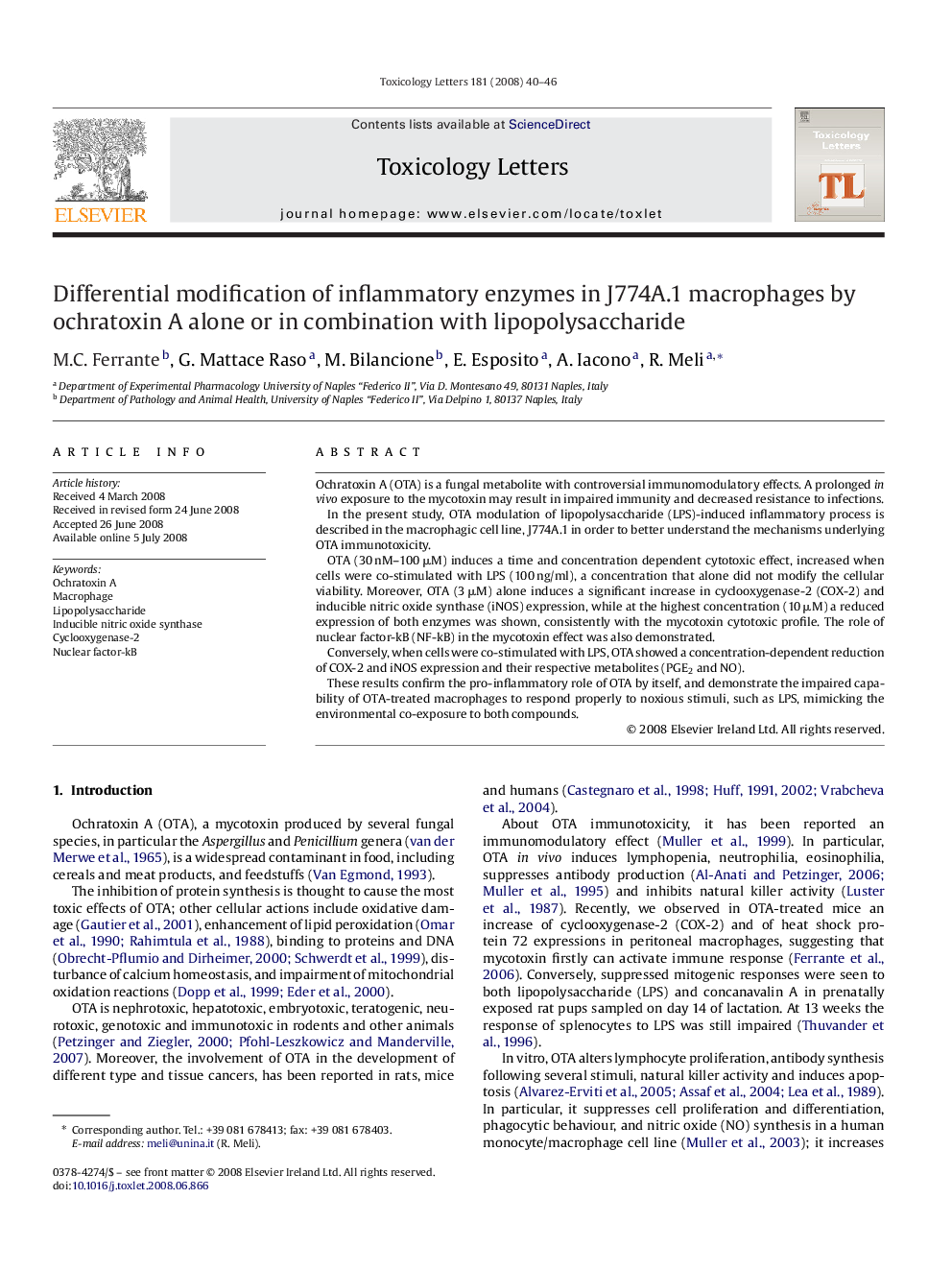| Article ID | Journal | Published Year | Pages | File Type |
|---|---|---|---|---|
| 2601439 | Toxicology Letters | 2008 | 7 Pages |
Ochratoxin A (OTA) is a fungal metabolite with controversial immunomodulatory effects. A prolonged in vivo exposure to the mycotoxin may result in impaired immunity and decreased resistance to infections.In the present study, OTA modulation of lipopolysaccharide (LPS)-induced inflammatory process is described in the macrophagic cell line, J774A.1 in order to better understand the mechanisms underlying OTA immunotoxicity.OTA (30 nM–100 μM) induces a time and concentration dependent cytotoxic effect, increased when cells were co-stimulated with LPS (100 ng/ml), a concentration that alone did not modify the cellular viability. Moreover, OTA (3 μM) alone induces a significant increase in cyclooxygenase-2 (COX-2) and inducible nitric oxide synthase (iNOS) expression, while at the highest concentration (10 μM) a reduced expression of both enzymes was shown, consistently with the mycotoxin cytotoxic profile. The role of nuclear factor-kB (NF-kB) in the mycotoxin effect was also demonstrated.Conversely, when cells were co-stimulated with LPS, OTA showed a concentration-dependent reduction of COX-2 and iNOS expression and their respective metabolites (PGE2 and NO).These results confirm the pro-inflammatory role of OTA by itself, and demonstrate the impaired capability of OTA-treated macrophages to respond properly to noxious stimuli, such as LPS, mimicking the environmental co-exposure to both compounds.
